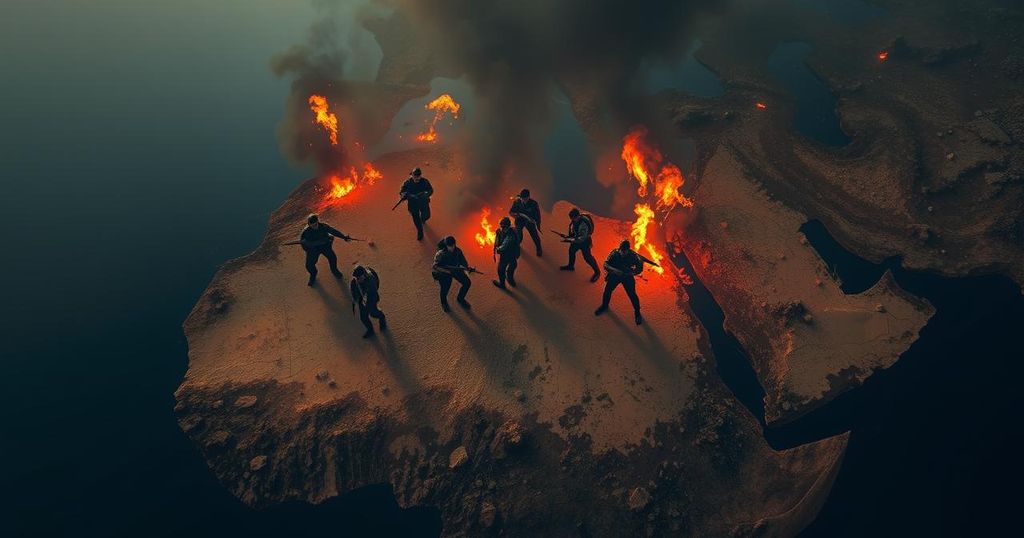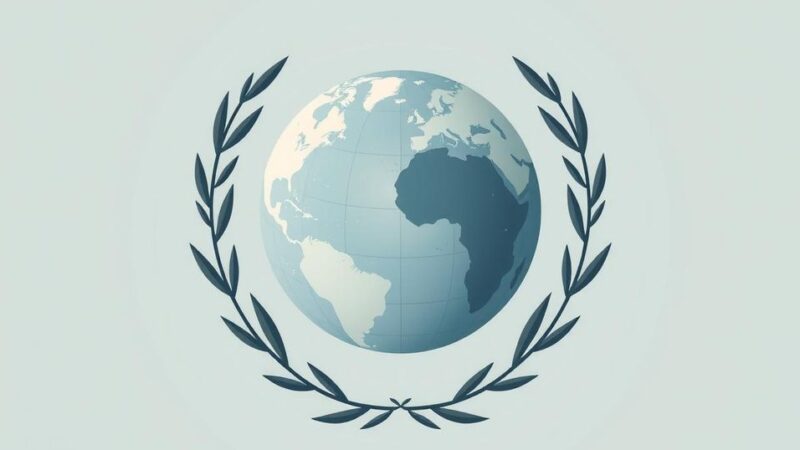Discontent with military juntas in the Sahel has increased as they fail to fulfill promises and employ repressive tactics. An investigative report reveals that casualties among civilians are rising, despite initial hopes for improvement. The juntas have turned to Russia for support while suppressing dissent, leading to significant concerns about human rights violations and political repression.
The Sahel region is witnessing increasing dissatisfaction with military juntas in Mali, Burkina Faso, and Niger, which gained power amid allegations of governmental corruption linked to former colonial ties with France. Protests erupted, demonstrating a shift in sentiment where civilians displayed Russian flags and denounced French influence. However, an investigative report indicates that support for these military juntas has waned due to unmet promises and harsh measures employed by Russian mercenaries against civilians. Evelyn Groenink, coordinator of ZAM, which published the report “Hotel Kremlin,” noted that early protests have begun to brandish slogans such as “Russia out,” signifying an emerging discourse on the failures of the juntas. The investigation, conducted by African journalists in the three nations, highlighted abysmal living conditions under military rule. Reports reveal frequent power outages, which have left regions in darkness and exacerbated public dissatisfaction. Initially, these juntas heralded Russian forces as a preferable option for security, asserting that they could effectively combat insurgencies. Contrary to these promises, violence and civilian casualties have surged, with grim reports detailing the overflow of morgues in major urban centers such as Bamako, where over 200 bodies were recorded within a few months. In a bid to reinforce their positions against sanctions following the coups, the military regimes formalized a confederation treaty called the Alliance of Sahel States, redirecting their allegiances away from France and encouraging connections with Russia. Despite this move seemingly unifying the member states against perceived neocolonial dominance and economic blockades, tangible benefits for local populations remain elusive. The wealth purportedly generated from such agreements appears concentrated among military elites, contrasting starkly with the poverty faced by ordinary citizens. Furthermore, dissent has become increasingly dangerous, with reports of significant crackdowns on opposition voices, activists, and media personnel across the three nations. Governments have resorted to abductions, enforced disappearances, and have curtailed political activities, raising severe human rights concerns. The relationship with France remains fraught, as accusations surface regarding Paris’s inadequate support in combating terrorism. This discontent has been manipulated by Russian propaganda to elevate the Wagner Group’s image, despite substantial evidence of their involvement in atrocities, further complicating the security landscape in the region.
The Sahel region, comprising Mali, Burkina Faso, and Niger, has experienced a series of military coups between 2021 and 2023. These upheavals were fueled by allegations of governmental corruption, citing collusion with France to exploit local resources. The aftermath of these coups has seen a significant shift in public sentiment, particularly towards foreign influences and the perceived ineffectiveness of military juntas to improve security and living conditions. Russian operatives, especially the Wagner Group, have entered the scene, promising better security outcomes but instead have contributed to an increase in violence and instability. The region also faces heightened human rights abuses under military regimes, which seek to suppress dissent and control information.
The situation in the Sahel region underscores a critical juncture in governance and international relations. Growing discontent with military juntas stems from unmet expectations, rampant repression, and the rise of foreign mercenary influences that have not improved security. While these juntas aim to solidify power through alliances with Russia, they are failing to address the fundamental needs of their populace, leading to increased unrest and calls for accountability. The path forward requires addressing civil rights and reevaluating the reliance on foreign military support, especially in light of the evidence suggesting worsening conditions under current regimes.
Original Source: www.dw.com






